 LOUISIANA DEPARTMENT OF ENVIRONMENTAL QUALITY | Secretary Courtney J. Burdette
LOUISIANA DEPARTMENT OF ENVIRONMENTAL QUALITY | Secretary Courtney J. Burdette
 A DEPARTMENT OF THE STATE OF LOUISIANA
A DEPARTMENT OF THE STATE OF LOUISIANA
Recycling Freon
FREON RECYCLES
Recovered Freon has a high value in today's market and is recyclable. "Freon" is actually a trade name that describes a whole class of chemicals used in refrigeration. Freon (dichlorodifluoromethane, commonly called chlorofluorocarbons, or CFC's) is highly regulated. Improper trading and importation of Freon has led to criminal prosecution. Federal agents have arrested smugglers and conducted "sting" operations on "black market" Freon. In dollar terms, chlorofluorocarbons have become second only to narcotics as the biggest smuggling problem at some U.S. entry points since the United Nations ban on manufacture in industrialized countries. Freon use is being phased out because it has been identified as an ozone-deleting agent.
ID REQUIRED
Freon purchasers must be certified technicians and have a valid EPA certification card. Otherwise, it is ILLEGAL to sell or offer for sale any refrigerant that contributes to the depletion of the stratospheric ozone. An assumption of certification by the seller is not sufficient. The seller must keep an invoice indicating the name of the purchaser, the date of sale, and the quantity of refrigerant purchased. This is serious business because a seller's failure to abide by the regulations can result in criminal penalties. The purchaser is required to maintain their wallet-sized certification card as proof of certification. Individuals should consult the relevant regulations before undertaking any activities involving Freon.
REQUIRED RECOVERY
The Clean Air Act prohibits knowingly venting ozone-depleting refrigerants (like Freon) while servicing or disposing of air conditioning/refrigeration equipment. In other words, Freon must be removed from refrigerators, freezers, and air conditioners, including automobile air conditioners entering the waste stream with the charge intact.
SCRAP YARDS and JUNK YARDS
State law prohibits anyone from knowingly and intentionally delivering scrap to a scrap metal collection and recycling facility that contains refrigerants containing chlorofluorocarbons. The disposer is required to "certify" that a refrigeration appliance is CFC free. Some scrap dealers refuse all refrigeration equipment. We suggest you call your waste hauler, recycler or scrap metal handler before disposal. Some cities and parishes offer curbside pickup of residential appliances, also known as white goods.
Automobile-junkyards are not required to remove Freon from automobiles being used for parts. They should not allow intact systems to be vented when parts are removed.
TECHNICIAN CERTIFICATION
There are certification requirements for recycling/recovery equipment, technicians, and reclaimers. Technicians are to maximize recycling of refrigerants during the servicing and disposal of air conditioning and refrigeration equipment. Note: The certification for personnel who service auto air conditioners is a separate certification from appliances. Personnel who are certified on automotive applications cannot work on non-automotive applications and vice versa without obtaining the appropriate certification.
NEW SUBSTITUTES
There are new non-CFC substitute refrigerants. Consumers can buy new substitutes. There are kits available to "convert' your auto air condition yourself. The connectors are very different. The "oil" is so different that you have to solvent flush your old system.
MIXING REFRIGERANTS
Mixing refrigerant types is not recommended due to a technical incompatibility unless the refrigerant is specifically approved for mixing.
REPAIR VS. TOPPING OFF SYSTEMS
If you have work done on a refrigeration system, an EPA certified technician must do it. Certified technicians know how to add and remove Freon without releasing it into the atmosphere. If your system leaks and you want the technicians to repair the leak, he will have to evacuate all of the Freon before he dismantles the system. There is no regulation requiring him fix it. It is a consumer decision: if your system is losing Freon, you can let it leak or you can have it repaired. You can have it "topped off" with more Freon. There is no mandate to repair the system. There is no prohibition against topping-off systems. The high cost of Freon does make topping-off an expensive endeavor.
FREON HAS A HIGH COST
This is due to scarcity and a tax. In order to discourage the use of CFCs, the U. S. has imposed an excise tax on new CFCs and imports of approximately $5.80/lb.
Want Certification? Have Questions?
The Ozone Protection Hotline has a listing of EPA-approved certifying organizations. Fact sheets are also available from the Ozone Protection Hotline at 1-800-296-1996. The Hotline operates between 10:00 a.m. and 4:00 p.m. eastern, Monday - Friday except federal holidays.
EPA: http://www.epa.gov/ebtpages/airairpochlorofluorocarbonscfcs.html
EPA Ozone Protection Regulations: Motor Vehicle Air Conditioning: http://www.epa.gov/ozone/title6/609/